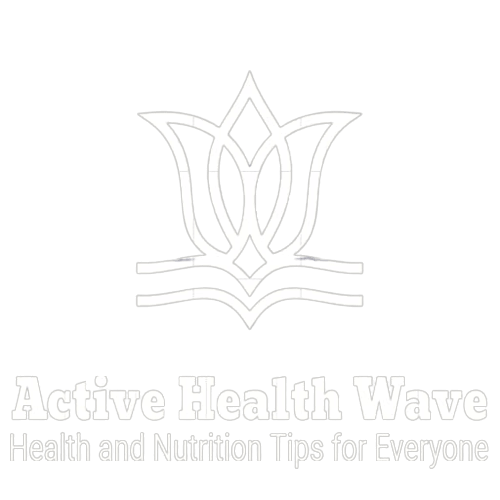Aging is a natural part of life, marked by a gradual decline in physiological functions […]
Aging is a natural part of life, marked by a gradual decline in physiological functions and an increased susceptibility to various health conditions. While we cannot stop the aging process entirely, there are numerous strategies, treatments, and dietary approaches that can promote healthy aging and enhance overall well-being. In this comprehensive guide, we will explore the science of aging, potential treatments, dietary considerations, and other findings aimed at improving health and quality of life as we age.
Understanding the Aging Process
Aging is a complex and multifaceted phenomenon influenced by genetic, environmental, and lifestyle factors. Several key biological processes contribute to aging:
Cellular Senescence: Over time, cells in the body undergo senescence, a state where they lose their ability to divide and function optimally. This process is linked to the accumulation of cellular damage and plays a role in aging and age-related diseases.
Telomere Shortening: Telomeres are protective caps at the ends of chromosomes that shorten with each cell division. As telomeres become shorter, cells age and are more prone to dysfunction.
Inflammation: Chronic, low-grade inflammation, often referred to as “inflammaging,” is a hallmark of aging. It contributes to age-related diseases like heart disease, arthritis, and neurodegenerative conditions.
Oxidative Stress: Oxidative stress occurs when there is an imbalance between free radicals and antioxidants in the body. Over time, this imbalance can lead to cellular damage and aging.
Potential Treatments for Healthy Aging
While there is no magic elixir to halt the aging process, several treatments and interventions have shown promise in promoting healthy aging:
Anti-Aging Creams and Serums: Topical products containing antioxidants, vitamins, and peptides can help protect the skin from UV damage, reduce fine lines, and maintain a youthful appearance.
Hormone Replacement Therapy (HRT): In some cases, hormone replacement therapy, such as estrogen or testosterone replacement, may be recommended by healthcare professionals to address age-related hormone deficiencies and associated symptoms.
Caloric Restriction: Caloric restriction, or reducing calorie intake without malnutrition, has been shown to extend lifespan and delay age-related diseases in animal studies. However, its practicality for long-term human use remains a topic of debate.
Intermittent Fasting: This dietary approach involves cycles of fasting and eating and may help improve metabolic health, promote autophagy (cellular “clean-up”), and potentially extend lifespan.
Supplements: Certain supplements, such as coenzyme Q10, resveratrol, and nicotinamide riboside, are being investigated for their potential anti-aging effects. Consult with a healthcare provider before starting any supplement regimen.
Senolytics: These drugs target senescent cells, promoting their removal from the body and potentially delaying age-related diseases.
Exercise: Regular physical activity can help maintain muscle mass, bone density, and cardiovascular health, reducing the risk of age-related conditions.
Mental Stimulation: Engaging in mentally stimulating activities, such as puzzles, reading, or learning new skills, can help maintain cognitive function and reduce the risk of cognitive decline.
Dietary Considerations for Healthy Aging
Nutrition plays a pivotal role in healthy aging. A balanced and nutrient-rich diet can help mitigate age-related changes and reduce the risk of chronic diseases. Here are some dietary considerations:
Antioxidant-Rich Foods: Incorporate foods high in antioxidants, such as berries, leafy greens, nuts, and colorful vegetables, into your diet to combat oxidative stress.
Omega-3 Fatty Acids: Omega-3 fatty acids found in fatty fish (e.g., salmon, mackerel), flaxseeds, and walnuts have anti-inflammatory properties and support brain health.
Lean Protein: Include sources of lean protein, such as poultry, fish, beans, and legumes, to support muscle maintenance and repair.
Fiber: A high-fiber diet can aid in digestion, maintain regular bowel movements, and lower the risk of conditions like heart disease and type 2 diabetes. Whole grains, fruits, and vegetables are excellent sources of fiber.
Calcium and Vitamin D: Adequate calcium intake, often obtained from dairy or fortified plant-based sources, and sufficient vitamin D from sunlight or supplements are essential for bone health.
Hydration: Stay well-hydrated, as dehydration can exacerbate age-related conditions and affect overall health.
Limit Added Sugars and Processed Foods: Reduce your consumption of added sugars, processed snacks, and sugary beverages, as they can contribute to weight gain and increase the risk of chronic diseases.
Portion Control: Be mindful of portion sizes to avoid overeating, which can lead to weight gain and related health issues.
Other Findings for Improved Health in Aging
In addition to treatments and dietary strategies, several other findings and practices can contribute to improved health and quality of life as we age:
Social Connections: Maintaining strong social connections and staying engaged with friends and family can provide emotional support, reduce stress, and promote mental well-being.
Quality Sleep: Prioritize getting enough high-quality sleep, as sleep plays a vital role in physical and cognitive health.
Stress Management: Practice stress-reduction techniques such as mindfulness, meditation, yoga, or deep breathing exercises to mitigate the negative effects of chronic stress.
Regular Check-Ups: Schedule regular health check-ups and screenings to monitor your overall health and address any emerging health concerns promptly.
Vaccinations: Stay up to date with recommended vaccinations to protect against preventable diseases, especially as the immune system may weaken with age.
Mental Health Support: Seek mental health support when needed. Conditions like depression and anxiety can affect individuals of all ages, and treatment can greatly improve quality of life.
Conclusion
Aging is an inevitable part of life, but it doesn’t have to mean a decline in overall health and well-being. Embracing healthy aging involves a combination of treatments, dietary strategies, and lifestyle choices that can promote physical and mental vitality. While there is no one-size-fits-all approach to aging gracefully, incorporating balanced nutrition, regular exercise, stress management, and proactive healthcare can significantly enhance the quality of life in our later years. It’s never too late to start taking steps toward a healthier and more fulfilling aging journey.













